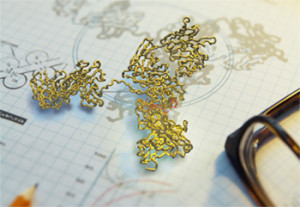 The Antibody Society is pleased to invite you to attend its annual Meeting, Antibody Engineering & Therapeutics, which will be held December 11-15, 2017, in San Diego, CA. We will be celebrating the 10th anniversary of the Society at the Society’s Special Session on Thursday December 14, 2017. In session previews that will be posted during September-November, the session chairs discuss the relevance of their topics to current and future antibody therapeutics development.
The Antibody Society is pleased to invite you to attend its annual Meeting, Antibody Engineering & Therapeutics, which will be held December 11-15, 2017, in San Diego, CA. We will be celebrating the 10th anniversary of the Society at the Society’s Special Session on Thursday December 14, 2017. In session previews that will be posted during September-November, the session chairs discuss the relevance of their topics to current and future antibody therapeutics development.
On Tuesday December 12, Paul J. Carter, Ph.D., Senior Director and Staff Scientist, Department of Antibody Engineering, Genentech, Inc., and Andreas Plückthun, Ph.D., Professor, Department of Biochemistry, University of Zürich, Switzerland will co-chair a session on overcoming antibody delivery challenges including brain and intracellular targets.
Antibody drug development is now a mature field with >60 marketed antibody therapeutics and hundreds more in clinical trials. Indeed, many of the more tractable and better understood targets for the treatment of human diseases have been extensively exploited for antibody drug development. This begs the question, where will new targets for future antibody drugs come from? One possible source of new targets for antibodies is in overcoming major delivery challenges that make some potential therapeutic targets challenging, if not impossible, to reach with conventional approaches. Presentations in this session will focus on three such delivery challenges highlighting basic research trying to understand the problems and translational studies attempting to overcome them.
The first delivery obstacle is to facilitate protein transport across the so-called blood-brain barrier (BBB) that prevents free diffusion of macromolecules from the blood into the interstitial fluid of the brain. This is an urgent and important problem to solve, given the tens of millions of individuals worldwide who are afflicted with neurodegenerative diseases and the lack of disease-modifying therapies. Incurable forms of brain cancer also represent another major unmet medical need. The second delivery challenge is increasing the efficiency of delivery of protein drugs to the lung. Addressing this challenge may facilitate the treatment of a range of serious lung diseases including autoimmunity, inflammation and cancers. The third delivery challenge is the “holy grail” for protein therapeutics of enabling proteins to cross the plasma membrane for delivery in a functional form to the cytosol. More than half of the targets for current drugs are located inside cells and accessible only to small molecule drugs. Efficient targeted delivery of protein drugs to access intracellular targets may greatly expand therapeutic target space. For example, blocking of protein-protein interactions is often readily possible with proteins and usually much more difficult with small molecules.
In the opening talk of this session, Jasi Atwal (Genentech) will present on bispecific antibodies to increase antibody delivery across the BBB into the brain. One arm of the bispecific binds to a receptor enriched at the BBB, such as transferrin receptor or CD98 heavy chain. The other arm of the bispecific binds to the brain target of interest. M. Jack Borrok (MedImmune) will describe targeting of caveolae-associated proteins to improve the delivery and efficacy of therapeutics that act within the lungs. Concurrently unwanted interactions with non-target tissues can be reduced. An alternative approach to delivery of protein drugs to the lung is by inhalation. This local lung delivery may provide rapid onset of pharmacologic action, as well as reduced systemic exposure and lower dose. Diane Van Hoorick (Ablynx) will provide a case study on an inhalable anti-respiratory syncytial virus (RSV) nanobody, ALX-0171, that is currently undergoing clinical evaluation for infants with RSV infection.
The final three talks will all approach the formidable problem of protein delivery, across the plasma membrane into the cytosol of cells. Wouter Verdurmen (Radboud University Medical Center, Nijmegen, The Netherlands) and collaborators developed a biotin ligase assay to quantify the relative efficiencies of various transport systems. This assay has been used to optimize protein transport by bacterial toxins and objectively compare it to cell-penetrating peptides and super-charged proteins. Next, Ernst Wagner (Ludwig Maximilians University, Munich, Germany) will describe the identification of potent intracellular delivery carriers derived from chemical evolution processes. Briefly, sequence-defined carriers from automated solid phase-assisted synthesis combine natural and artificial amino acids are combined with other transport elements, providing receptor-targeting and endosomal release function. In the final presentation of the session, Thomas Marlovits (Institute of Molecular Biotechnology, Austria) will describe bacterial type III secretion systems. These syringe-like “injectisomes” are megadalton in size and transport bacterial toxins across membranes directly into a eukaroytic host cells. Investigation of the injectisome led to the design of substrates that can be translocated directly into eukaryotic cells.
Interested in attending the meeting? Society members can save 15% on the registration fee!
Not a member? Please join!
Membership is free for students and employees of the Society’s corporate sponsors.

